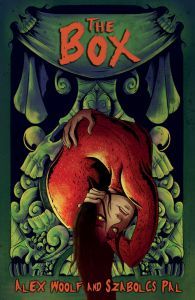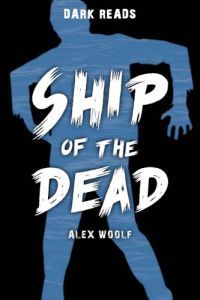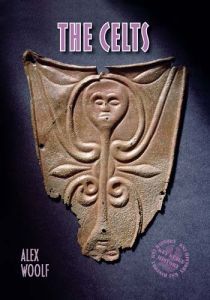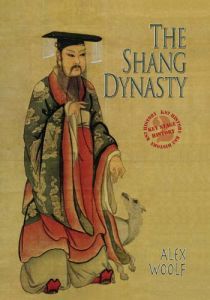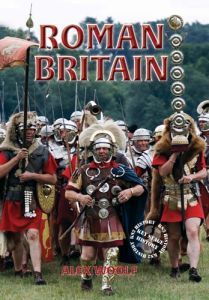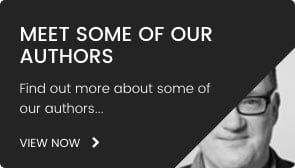Alex Woolf
Alex Woolf is the author of The Box from Badger Learning’s horror series for teenage reluctant readers, Big Top of Horrors, and also, Ship of the Dead from their Dark Reads series. He has written more than 80 books, mostly for children and young adults. His fiction includes Chronosphere, a time-warping science fiction trilogy, Aldo Moon and the Ghost at Gravewood Hall, about a teenage Victorian ghost-hunter, and Soul Shadows, a horror story about flesh-eating shadows, which was been shortlisted for the 2014 RED Book Award.
When he's not busy writing, Alex visits schools around the country offering talks and creative writing workshops.
Q&A with Alex Woolf
What inspired you to write for reluctant readers?
I was a reluctant reader, so I know exactly how daunting books can be. They didn't have books for reluctant readers back in those days. I can remember the boredom of having to read books written for younger kids because that was all that was available for me. I even remember pretending to have read books when all I'd managed was the first chapter. This is why I feel proud to be able to write for reluctant readers today, giving them a chance to enjoy books in the way that I never could. I also have a son who's a reluctant reader, and can't wait to show him some Dark Reads.
What challenges do struggling readers face when they open a book?
A page full of words can seem like an insurmountable cliff to a reluctant reader. That was how I felt. It took me a long time to realise that you can actually lose yourself in words, and that the brain has the amazing ability to transform them into pictures in your head.
What is your favourite type of character to create?
I like characters who are a little bit complicated – good people with dark secrets or secret fears, or bad people with a hidden good side. Those are definitely my favourites. Heroes that are too perfect, and villains who are totally evil bore me. One of the characters in Ship of the Dead must make a terrible choice. She's a good person, but she has to display her ruthless side to do what's necessary.
What features and methods do you use to ensure that your books have that High-Interest appeal that really engages young readers?
I like to take a bunch of quite ordinary young people and throw them into dangerous and scary situations. The more the characters resemble the kind of people who are reading the books, the more likely it is that readers will feel engaged with the story. And then whatever crazy things happen, it'll seem believable. The other thing I like to do is to use dialogue whenever possible. It's much better to let the characters speak for themselves and describe what's happening in the story than have the author do it for them. In other words, I try to keep my distance. Writers call this method 'show don't tell'.
What difference do books like these make to children who are in need of literacy support?
A huge difference. Reading a book from start to finish is a massive confidence booster. I still the remember the buzz I got after finishing a book. These books will give reluctant readers the chance to access stories written for their age group. By giving them confidence in their own abilities, they can act as a bridge into more challenging reads.
Can you give us any teasers of what to expect in your either your upcoming Dark Read or History titles?
My Dark Read title is called Ship of the Dead, which may be quite a big clue as to what it's about! Suffice to say, it's set on a cruise ship and there's something not quite right with most of the passengers and crew...
What are the major themes of your work?
I love horror, history and science fiction, and those are the themes I mainly write about in my fiction. My novels include Soul Shadows, about cannabalistic shadows, Aldo Moon, about a teenage Victorian ghost-hunter, Chronosphere, a time-warping trilogy set 200 hundred years in the future, and Iron Sky, a steampunk series set in an alternative 19th century.
What controls do you place on the vocabulary you use and how important is this?
I'm a firm believer in never using a complicated word when a simple one will do just as well. I follow this rule in all my writing, not just for reluctant readers. On the other hand, I really try not to over-simplify. It's a case of striking a balance. The biggest challenge when writing for reluctant readers is the low word count. When there are so few words per page, you have to really work hard to make every word count.
What is your favourite children's book?
The Magician's Nephew by C S Lewis, or James and the Giant Peach by Roald Dahl, or The Subtle Knife by Philip Pullman. One of those three anyway.
Do you have any advice for aspiring writers/authors?
1. Read as much as you can.
2. Try writing something every day, even if it's only a paragraph.
3. Keep your eyes and ears open. Observe how people act and the way they speak. The raw material of all good writing is real life.


